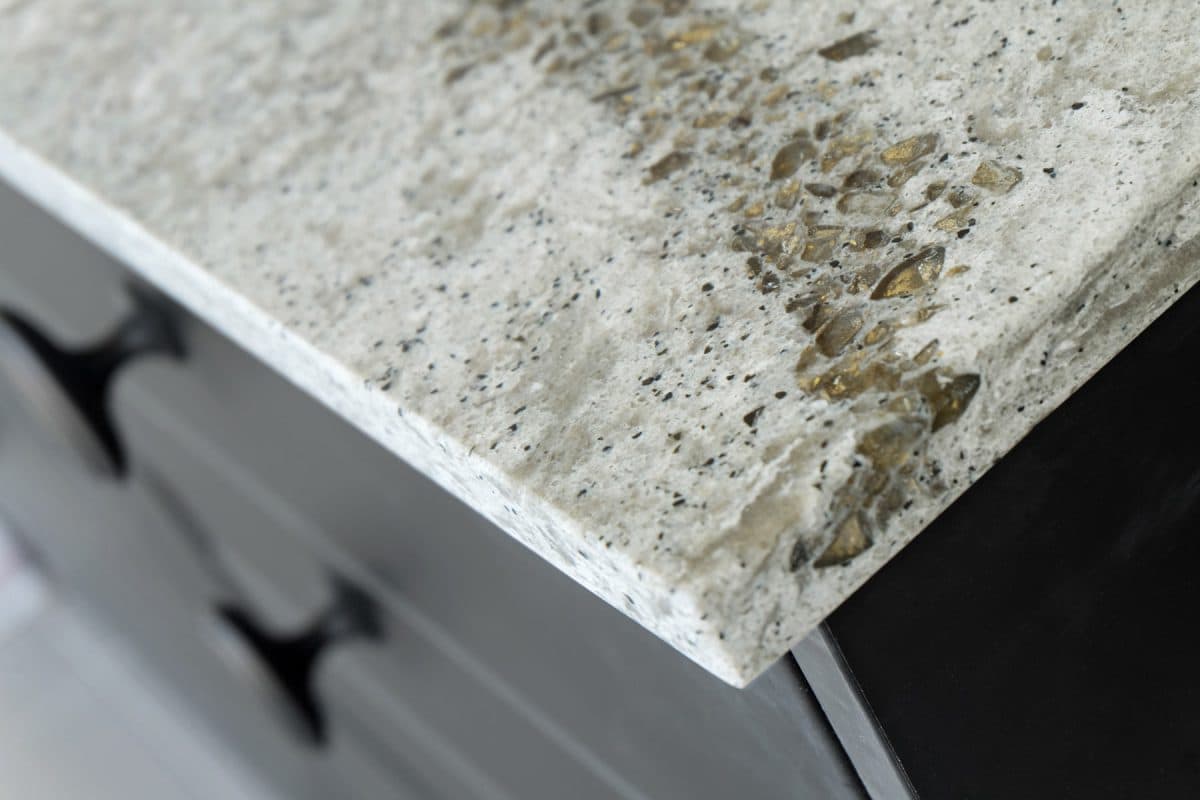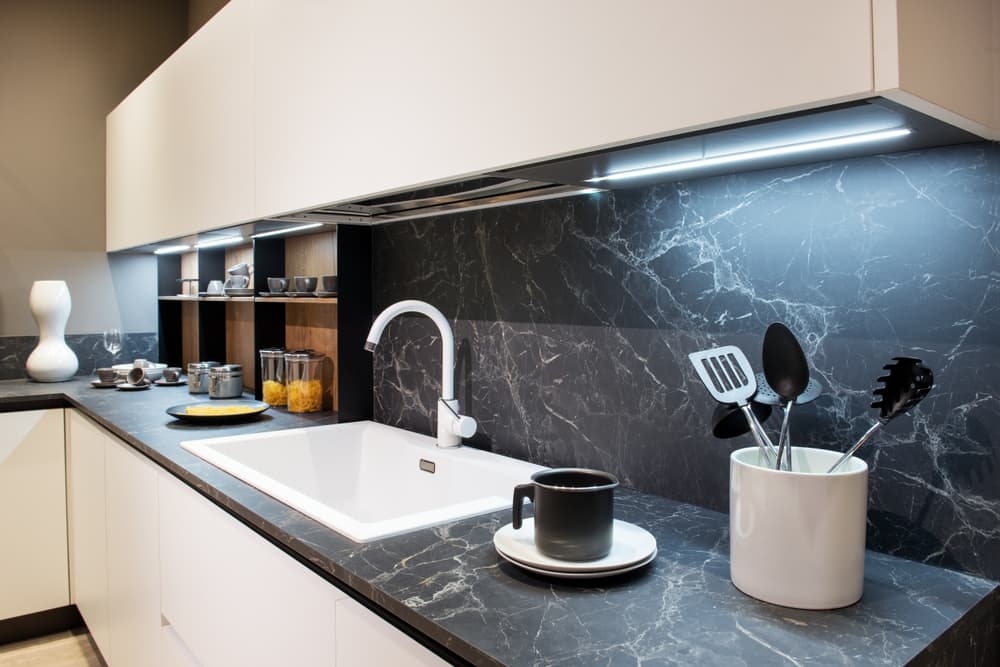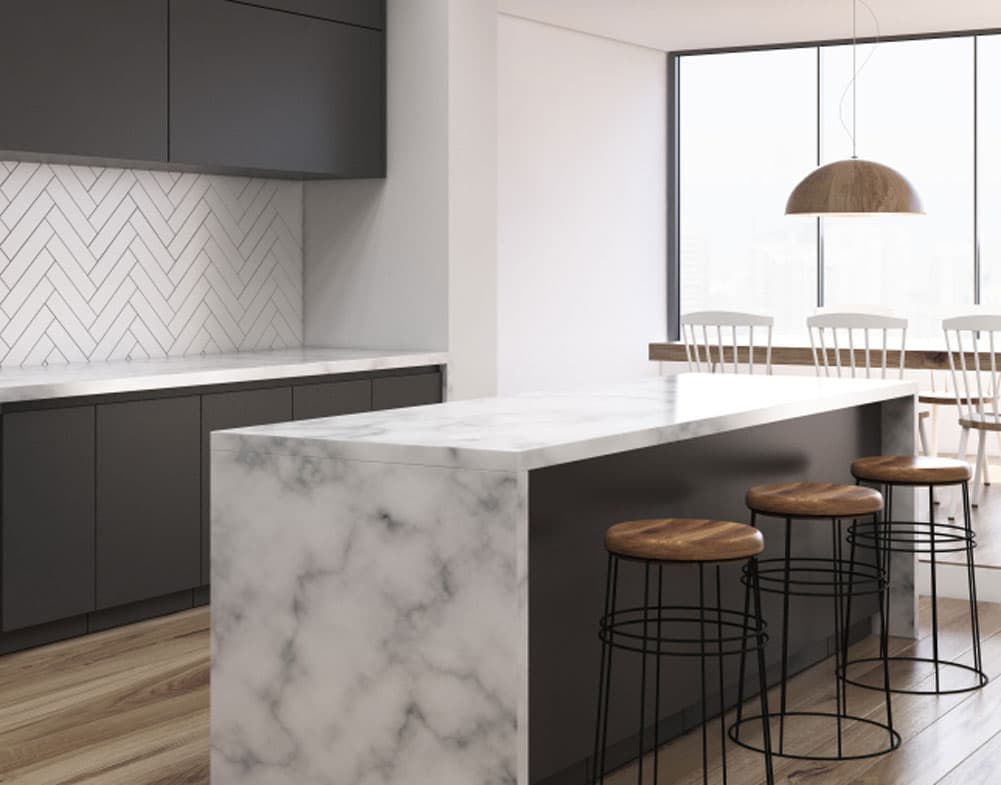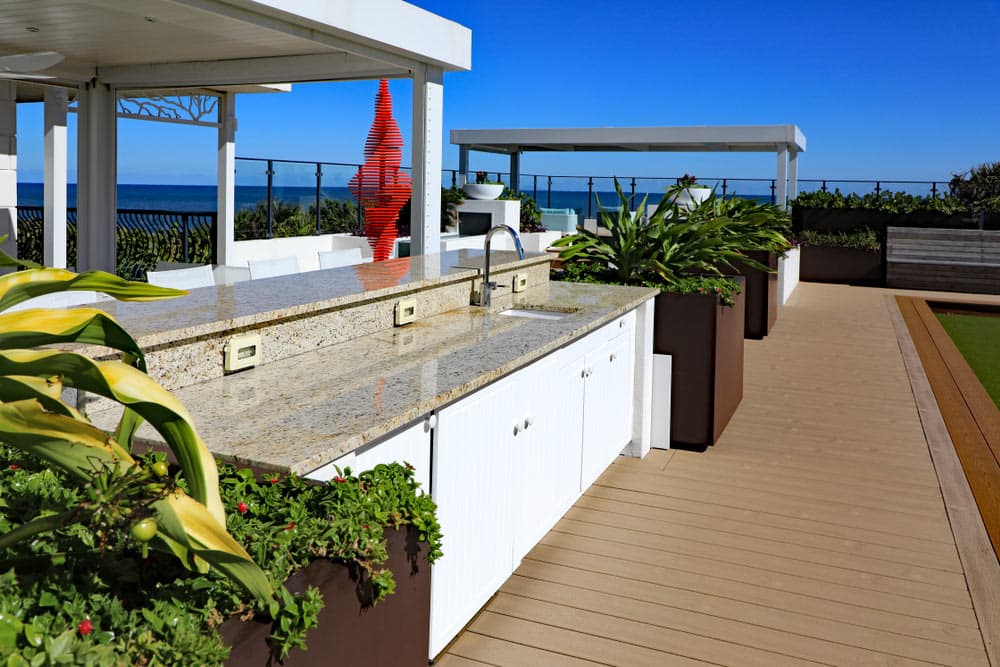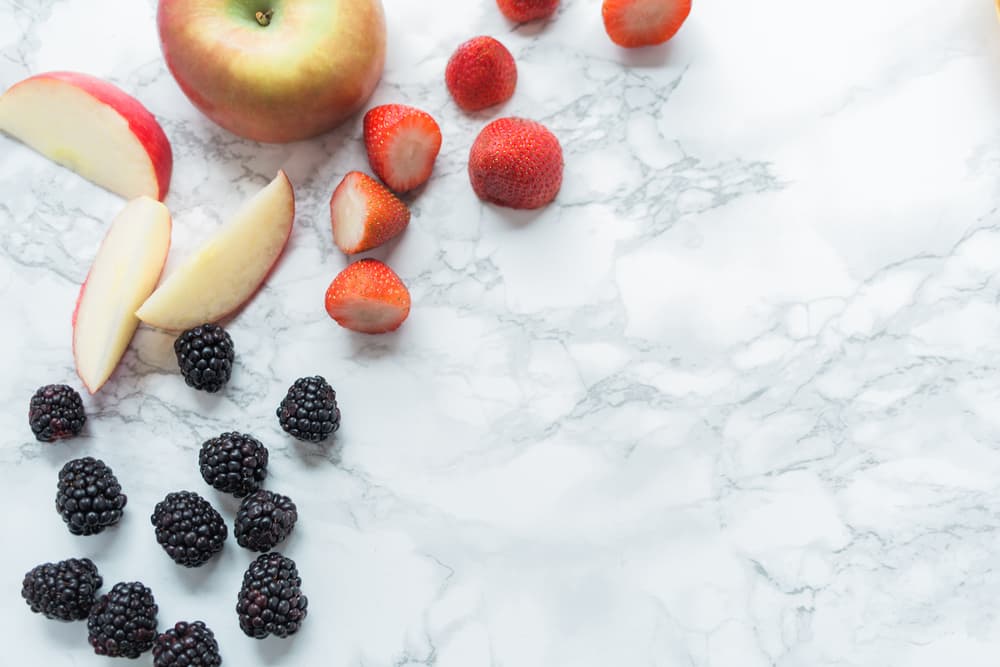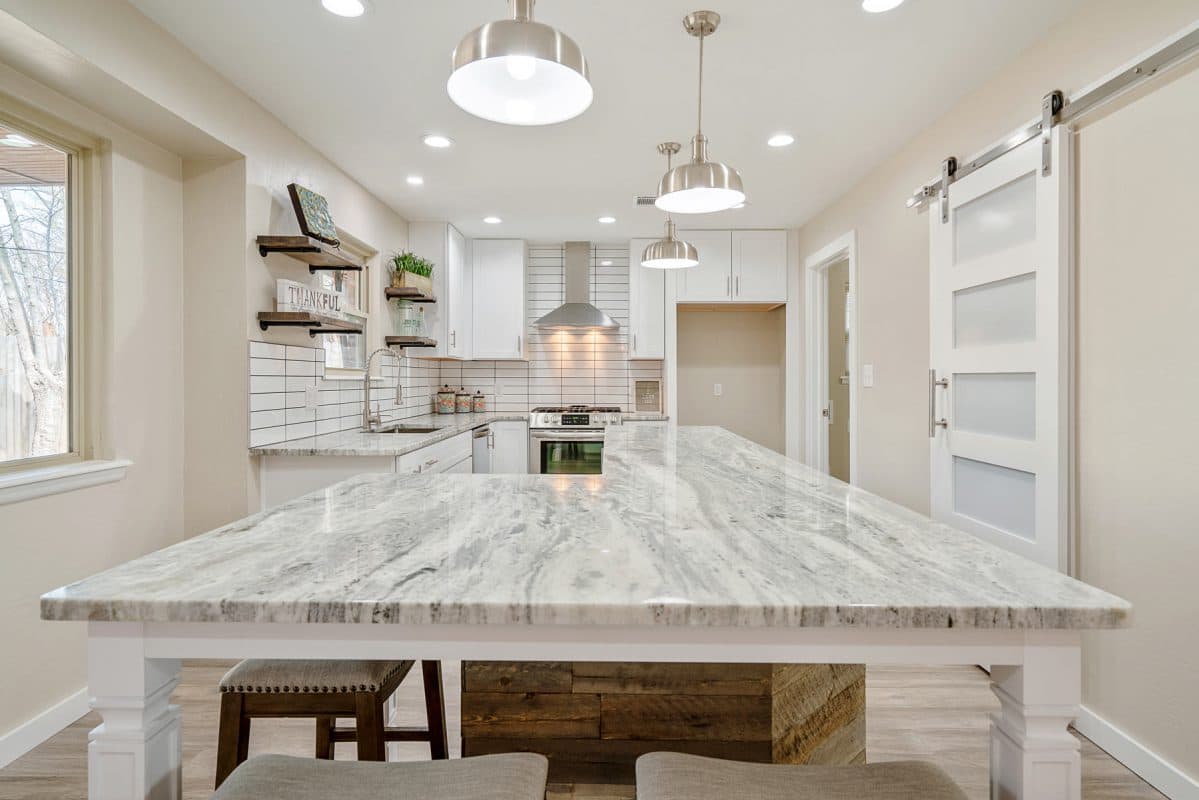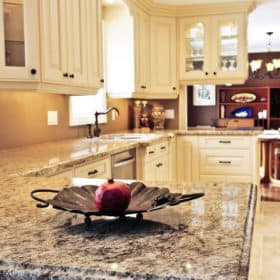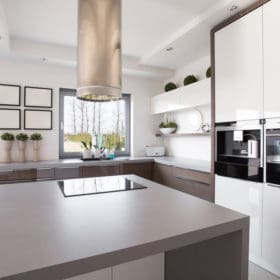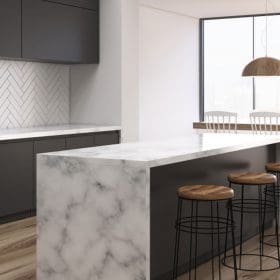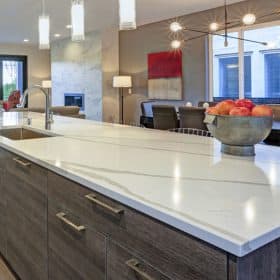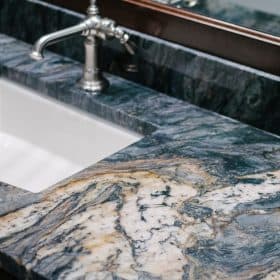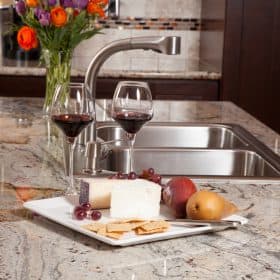Most people assume that porcelain and Dekton are similar countertop materials but they have different things to offer. Dekton countertops do contain some of the raw materials that are found in porcelain. However, there are some significant differences between these two surfaces. For a start, Dekton also contains some of the raw materials that are used to make quartz surfaces resilient. This results in a much more superior product. Even though quartz countertops offer exceptional all-round performance, Dekton somehow outperforms quartz because it cannot be damaged by heat, stained or discoloured. Additionally, Dekton can be installed both indoors and outdoors whereas quartz is mostly recommended indoors because it’s prone to discoloration when exposed to the sun’s UV rays. However, heat damage, staining, and discoloration are still problems for quartz countertops. One advantage of quartz over Dekton surfaces is that it doesn’t chip easily. Both Dekton and quartz offer a range of colours and patterns to choose from and don’t require sealing.
